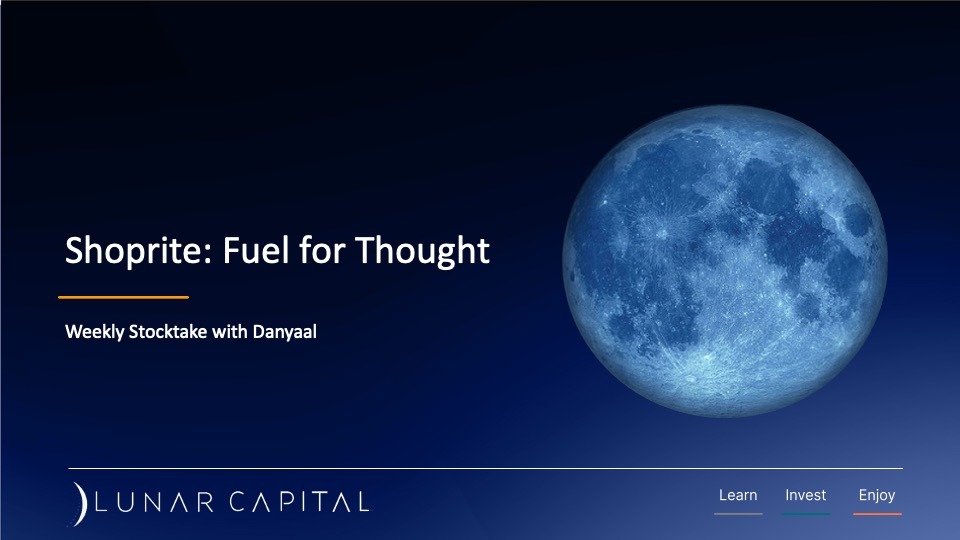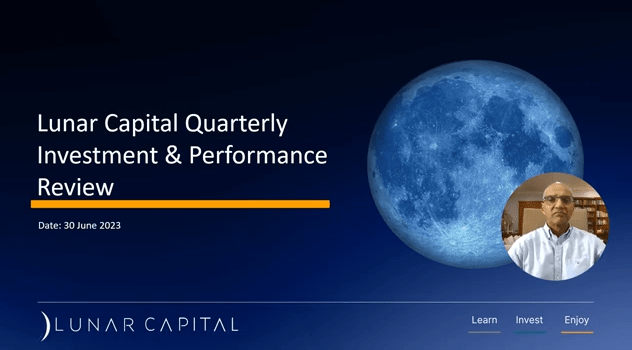Shoprite: Fuel for Thought

Good results, tough environment. Let’s dig deep into Shoprite recent results.
Lululemon: Stretching Legs Internationally

International sales and quality products. Learn about how Lululemon are expanding their business.
Nvidia: Where to from Here?

After having a standout quarter, what is the long-term path for Nvidia, a Lunar Capital owned business?
Adyen: Growth at All Cost?

Find out about Adyen, the Dutch Fin-Tech company, and how the market has reacted to their wobbly expansion.
Novo Nordisk: The Hype Around Semaglutide

Revolutionizing diabetes and obesity care: meet one of the companies at the forefront.
Amazon: Manic Obsession over the Customer

Discover one of the core principles behind Amazon’s success – and how they’ve used it to create value over the long term.
Enphase: New Power on the Block

Find out about the factors driving Enphase’s recent results. Enphase Energy, a business held in the Lunar BCI Worldwide Flexible Fund…
Tesla: No Margin for Error

Cult-like personalities and Innovative products, learn more about Tesla and their underlying business.
US vs China: Battle on the Semiconductor Front

Find out how the US is attempting to prevent China from developing its Advanced Computing and Military Capabilities using trade restrictions.
Quarterly Investment & Performance Review – June 2023

Sabir provides an update of Lunar Capital’s Funds’ Performance and Strategy as of end June 2023.
